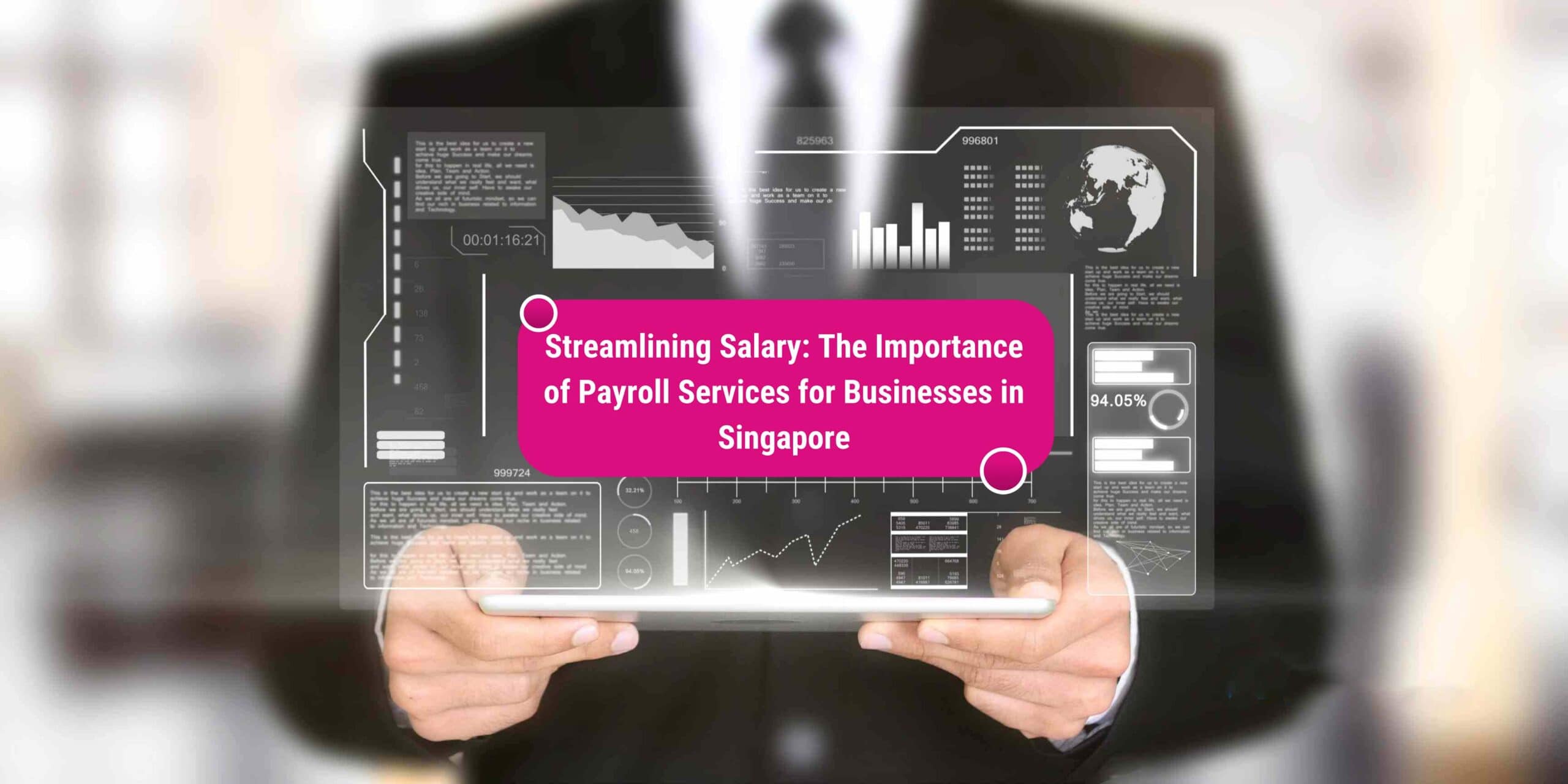Issues related to workers’ pay packages are not completely reduced in pursuit of specialized payroll services. Industries in Singapore cannot escape the complexity of calculating monthly payroll, generating payment spreads as a result of languages used, giving bank skips on non-working days or hiring foreign workers who receive remuneration on a different payroll processing horizon. Streamliners know that an organization dependent in Singapore slows down the collective internal operations and the potential growth of the entity. The benefits of engaging local payroll services go beyond professionals who know the nuances of payroll management and local regulations that govern CPC and earnings. A rendered full payroll is the effect, not the cause, of successful results in meeting management.
Portions remember the 1940s; their younger colleagues enjoy the comfort of online remuneration systems that can be accessed on Cloud 9 without reading managed purchase cards, catchment dispensation bundles, and error letters. In the minds of these former practitioners of payroll management, a state of desiring intelligent payrolls that regulate administrative burdens and frustrating error outputs still exists.
Benefits of Payroll Services
Due to enhanced technology and software, payroll services can provide the most current information and assistance. These services can also ultimately help to prevent businesses from being fined in unrealistic proportions.
Viable payroll services can help a business entity remain competitive within their industry. Since payroll can be fairly time-consuming and unproductive, HR personnel can instead focus on activities that may create revenue for the company. For many businesses, payroll can take up a large part of HR’s week, sometimes for as long as ten or more hours. These services can essentially alleviate an HR professional’s schedule – in just the area of payroll alone, reliable payroll services can potentially create an impressive time-saving benefit.
When a business entity decides to outsource their payroll and administrative needs, they can save money on buying and maintaining up-to-date and secure HR. In addition to expertise in payroll services, Singapore companies can offer additional staff for consultation and training purposes. Training savings of this nature often help to increase overall cost efficiency levels.
The accuracy of these services is also a major benefit many businesses report. Payroll services can help prevent mistakes right from storage and data collection to more intricate matters such as employee information and tax regulations.
One major advantage of using these services is also potential increased cash flow. Indeed, when a business only has to pay HR professional for the hours actually worked, as opposed to consistent hourly pay. This is particularly relevant for professionals who are often on conferences, calls or other work-related duties. As well as saving a business money, it can save time that would be spent correcting erroneous paychecks.
There are numerous benefits to reliable payroll services Singapore. For many employees, payroll duties exceed simply cutting a check. These services can help ensure that every one of these duties is conducted accurately and promptly. In turn, this can minimize potential conflict between employees and the HR department, since staff can rest assured that the HR staff members are taking timely and accurate care of their payroll needs.
Accurate Salary Calculations
We have already stated that payroll handling process errors can lead to employee dissatisfaction. A direct consequence of dissatisfied employees is higher employee turnover. We are not just talking about employees leaving the company, but we are also talking about termination, job rotation or regular transfers. Similar to dissatisfied employees, employees who are not sure that they receive accurate payments can become distracted, hard to solve and lead to workplace conflicts. Keeping in mind that payroll errors can lead to mistrust of the employer and loss of motivation, they are also harmful to the company’s reputation as a serious and efficient workplace. Do you want to have the reputation of not fulfilling your obligations? Not a single employer wants to gain and maintain this title! Another direct consequence of making employees dissatisfied with their pay is a decrease in employee productivity, which ultimately will reflect in a decrease in the overall performance of the company.
Streamlining salary: The importance of payroll services for businesses in Singapore. Accurate and transparent employee payment is critical to the relationship between employee and employer. It is important that both the employees and the employer have a clear understanding of the various components of the salary, including tax payments. Unfortunately, each year, employees and employers make mistakes and errors related to the calculation or payment of salary. If the company manages its payroll internally, it’s going to have more difficulty managing payroll efficiently. This is due to the cumbersome nature of finding the entire payroll procedure from start to finish.
Compliance with Employment Laws
Employee direct entrance in these retirement schemes could require some effective monitoring by the employer and act as a critical one, particularly in a profession where the employee is required to be vigilant and should clearly be enacted by the prudent employer. No matter how dull and time-consuming the mandatory contribution calculations and data adjustments may seem, they cannot be done accidentally or the employer/salary administrator would be put on notice in proceedings with potential employer liability. Hence, there is a high degree of accuracy and efficacy involved in this operation. There is also the need for employers to maintain labor regulations, benefits, and leaves and the regulations relating to mandatory contributions to these benefits. Knowing about the continuous changes can become the necessity, and employers are required to be updated with these changes concerning salaries and benefits for all employees in every location. Keep up with the information flow to higher payroll service providers who can maintain all of the above requirements through constant communication.
Another significant factor why every employer uses a licensed payroll agency is due to the nature of work involved in processing payroll data. Employers need to remain updated on changes in employment regulations, tax regulations, regulations about employee benefits retirement, and regulations concerning mandatory contributions to retirement schemes maintained by the employer for employees.
Compliance with employment laws: Every organization that provides employees with fixed or permanent employment is legally bound to comply with employment laws. A frequent payroll schedule provides its own set of challenges when there are many employees on board. This is often related to ensuring timely payment of employees who reside at locations away from the office, where employees are unable to come into the office to collect their salaries. Despite this, salary transfer is often done only on the last day of the month or on the first day of the new month. An online payroll system, which utilizes salary accounts administered by an appointed bank, allows for the efficient and instantaneous transfer of salaries to the employees.
Time and Cost Savings
In businesses that operate without professionally trained payroll personnel, it is rare for a novice staff member to take on payroll responsibilities almost immediately. In such circumstances, it is likely that a staff member will pick up either the preparation or review role while another staff member continues as the payroll intermediary. This scenario casts the payroll intermediary as a bottleneck as he becomes the contributing factor of a limited performance evaluation of the staff member with payroll responsibilities. Upon the successful completion of the initial activities and given the appropriate level of support, training, and preparation, the ability to be multitasked leads to more independent tasks. As confidence grows, junior staff members are given more challenges and are asked to act as payroll intermediaries as well. Given the right approach to staff training and development of payroll competencies, this scalable business model will allow administrative and finance staff to focus on their own support and perform more complex tasks while building payroll competencies that are key to the longer-term career paths of your employees.
With the implementation of a consistent payroll process that is properly set up and documented, the payroll of a business can be compartmentalized such that a staff member who is not a payroll professional can perform all routine payroll activities. When the lighter admin staff takes on part of the payroll responsibilities, the companies do not have to rely on software maintenance by payroll experts, freeing them to focus on more complex and strategic work. Smaller companies with no designated payroll experts stand to benefit most from this arrangement as multitasking reduces work and speeds up the process.
Choosing the Right Payroll Service Provider
Companies operating in Singapore need to be aware that their data processing services providers are ‘required to comply with certain obligations’ under the Act with respect to providing data subjects with access to their personal data and the ability to request that it corrects personal data as well as not to disclose any personal data to an overseas recipient unless such recipient does not breach the PDPA, among other requirements, stated by the Infocomm Media Development Authority PMC guide. To bring about more data security and for ease of compliance with the organization’s internal data policies and regulations, payroll providers in Singapore are required to store their clients’ private and confidential payroll information in a locally hosted server.
- 2. What technology is your software built on? Check with the provider on the technological specifications of their software systems: from the back-end of data collection and management to the front-end of payslip generation and employee self-service. What is the payroll system’s offline scalability? Does it offer options for a private and secure API? Ensure the software is not only accessible to your employees/directors but it should also have options providing flexibility, control, and compliance with local data regulations.
- Where is your data stored and transferred? Singapore’s Personal Data Protection Act (2012) prohibits the transferring of personal data of Singaporeans out of the country without obtaining a Data Protection Commission (PDPC) permit or the consent of the individual. However, a great many of the payroll software providers are cloud-based, which means they store and process data in servers located in other countries, sometimes without the client’s explicit consent. For companies serious about data security and compliance with PDPA, it would be ideal to partner with a payroll provider that has a dedicated server located in Singapore.
How do you choose the right payroll service provider for your company? Here are 5 important questions to ask when choosing a payroll service provider in Singapore. You should feel comfortable with the answers the company provides.
Assessing Service Offerings
Balancing the business units’ desires or hyper-customization against a common standard of basic controls without being overly restrictive is constantly being considered. Methodology for introducing new countries versus speed to market are two factors consistently in tension. Will the payroll provider work on a performance-based or success-based pricing mechanism to include a base compensation of the staff doing the payroll expected to be paid properly and on time every month? Clearly, the inclination is the more successful one can get the private nature of the expense and eventually increase take-up rates. Ultimately, there is an emphasis on delivering the “WOW factor” by doing unexpected things well.
Given the basic offerings of payroll providers, what further advantages or service offerings would be utilized by a company when assessing a particular payroll provider? As Chart 1 indicates, beyond basic compensation data collection, companies’ primary needs tend to be the ability to help respond to regulatory changes and access to leading-edge technology. It seems like the payroll industry as a whole is responding to this as the greatest growth in service offerings has recently been in compliance management, control of compliance, and security technology. This being the case, what other tendencies will be used when assessing service offerings of a payroll provider? Leaders clearly need to be market disruptors.
Reputation and Experience
Companies might generally check if the payroll provider is able to handle the integrations as it is impossible to have a manual intervention on every step of the payroll process. In regards to this, the client’s needs for technical resources regarding the computer system as well as middle-office tasks have evolved into a critical element in the process of selecting workers in the area of customer-based market processing. It can be crucial to know if they are using the right technology, such as whether they run on modern payroll systems, provide easy and appropriate software that allows for the organization to administer leave, OT, and salary details as well as up-to-date statutory compliances. Service providers’ capacity to provide and organize employee payroll details such as salary slips, tax slips, and records is additionally important to their final decision. Furthermore, the clients also have to understand the existence of a protocol between their internal software and the service provider in terms of internal processing and approved data accuracy.
Clients should check for the reputation and experience of the service provider in offering payroll processing services. This makes sure that the provider is proficient in offering the specific services required by clients. Besides, it is a common concern that the service provider may have low knowledge on the rules and regulations of payroll. To mitigate this concern, clients should obtain detailed information on the service provider such as their good history. Clients should also check on their resources, including service centers, employees, and back-up service. Knowing that the service provider has a reputable background can help clients feel more secure in their outsourcing endeavor. Payroll systems are integrated into other systems, such as financial systems, personnel management, time and attendance, procedures and rules, as well as compensation systems. These integrations allow for process effectiveness and efficiency.
Pricing and Affordability
Affordability has come to play a major role in the popularity of most payroll service providers today. Even comprehensive solutions will commonly save an organization money by cutting down some labor costs while reducing the need to invest in expensive payroll software or dedicated human resources employees to organize employment contracts on a monthly basis. Considering the many features and benefits that payroll service providers successfully incorporate into their plans without hiking up the costs, business owners and HR personnel may also easily justify the expense, which ties in closely with the cost savings companies achieve as a result. With comprehensive service oriented towards fixing complex payroll needs, the consistent quality and delivery of services that these providers maintain also convince organizations that their choice was a good one.
Small and mid-sized enterprises or SMEs with Singapore-based workforces would do well to consider the various solutions currently available and how these businesses can benefit from payroll services. With competitive prices appearing in the payroll landscape and the benefits organizations stand to receive from these solutions, the decision is an easy one to make. Many SMEs need not go beyond the basic services that come with an entry-level plan as a result, given that these often best suit the business’s needs. When scaling up, all it requires is opting for the next higher offering or verifying that the pricing and built-in features match the company’s requirements. Consequently, SMEs may best benefit from the packages offered by these providers rather than attempting to opt for a custom employment contract to realize cost savings.



